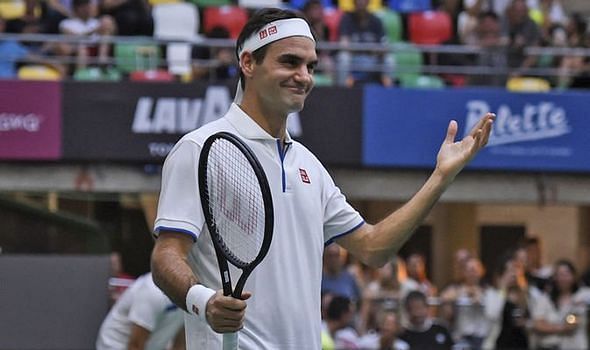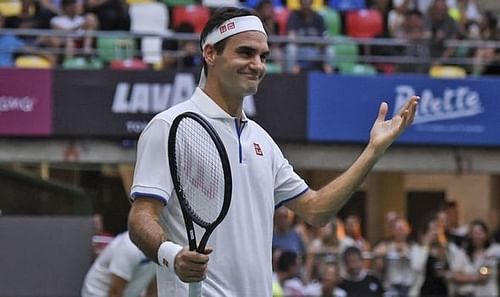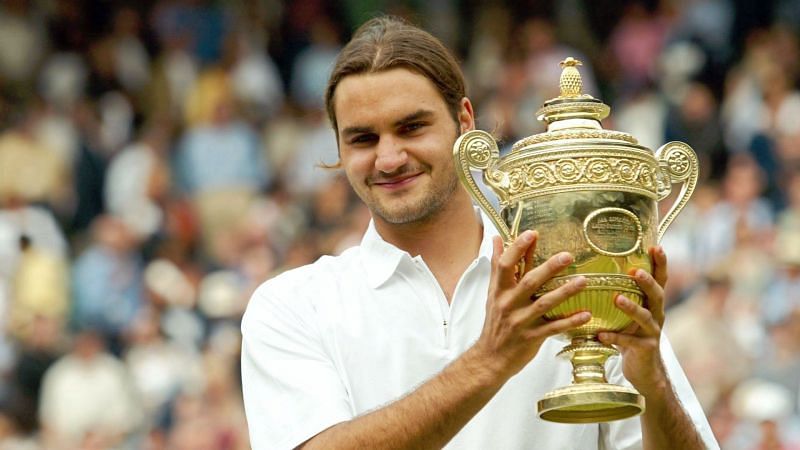
Federer in the 2000s vs Federer in the 2010s

Roger Federer has had a stellar 22-year professional career. Since a defeat to Argentinian lucky loser Lukas Arnold Ker in the 1998 Gstaad opening round, Federer has racked up a staggering tally of 1237 wins and 270 losses for a career win-loss record of 82.1%. That success rate is bettered by only 3 other players in the Open Era, 2 of whom happen to be his Big 3 peers - Rafael Nadal and Novak Djokovic.
In his fourth year on tour, Federer provided a glimpse of his potential when he dethroned 7-time champion Pete Sampras in an enthralling 5-set fourth round thriller at 2001 Wimbledon. But it would be two more years before the Swiss would arrive on the Grand Slam stage.
Federer beat Australian Mark Philippoussis in 2003 to become the 18th different Wimbledon champion in the Open Era. Barring a fourth round exit at the 2003 US Open (David Nalbandian), a third round loss at the 2004 French Open (Gustavo Kuerten), and a semifinal reverse defeat to Marat Safin after squandering match points in the semifinals of the 2005 Australian Open, Federer swept all other Grand Slam titles on offer to become the first player in the Open Era to win his first 7 Major finals.

A trio of French Open final reverses and a pair of five-set losses in the Australian Open and Wimbledon finals notwithstanding, the 2000s were a hugely successful decade for Federer. He captured 15 Grand Slam titles in that period, to go past Pete Sampras' record tally of 14.
The Swiss maestro occupied the No. 1 spot for a record 237 consecutive weeks between 2004 and 2008, winning a record 24 consecutive finals before being stopped by David Nalbandian at the 2005 ATP Finals.
Amidst a plethora of other records, Federer reeled off 5 consecutive titles at Wimbledon and the US open, winning the Wimbledon-US Open double in 4 consecutive years - feats likely to remain untouched for a very long time.
Federer in the 2010s was understandably less dominant at the big tournaments than he was in the 2000s. He captured 5 Grand Slam titles from 10 finals in that period to retain the all-time Grand Slam title lead by just one Slam.
In the 2010s, the Swiss maestro displayed an uncharacteristic propensity to lose against lesser ranked opponents he would have swatted away in his prime.
Among Federer's prominent achievements during his second full decade in the sport would be capturing a record 8th title at Wimbledon, becoming the first player at any tournament to record 100 wins (2019 Wimbledon), and becoming the first player to win 10 titles at a tournament on two different surfaces (Halle-grass, Basel-hard court). The Swiss maestro also joined Jimmy Connors as the only men to win 100 singles titles and record 1200 match wins.

In the following analysis, let us determine Federer's performance under five different parameters in the two full decades during which he has been on the tour.
#1 Win-loss
During the 2000s, Federer won 663 singles matches as compared to his haul of 559 wins in the next decade. The Swiss maestro's corresponding number of defeats during this period were 141 and 109 respectively.
While its logical that Federer of the 2000s went deep at more tournaments than the one in the 2010s, which explains the disparity in the two win tallies, what would perhaps come as a surprise is the number of losses during the two decades.
Had Federer continued his 2000s win-loss % in the 2010s as well, 559 wins in the 2010s should have yielded him 119 losses. But the Swiss endured fewer defeats during this period.
Federer's win-loss record in the 2010s (559-109, 0.836) is actually superior to his win-loss record during his dominating 2000s (663-559, 0.825).
This anomaly can be best explained by the fact that 83 of Federer's 141 losses during the 2000s came before he made his Grand Slam breakthrough at 2003 Wimbledon. After that, his win-loss record for the rest of the decade (including 2003 Wimbledon) was an impressive 477-68 (0.875).
Purely in terms of win-loss % during two decades, Federer of the 2010s wins this category.
WINNER: Federer of the 2010s